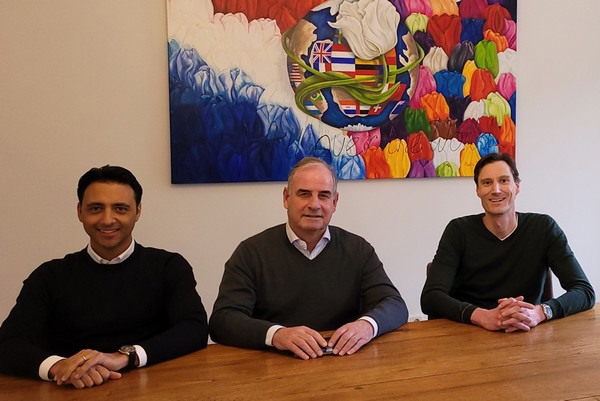The onion shortage in the European market has made for an entirely different start to the import season. "I've not experienced this very often in my onion trading career. The 2018/2019 season was also memorable, but now it's even more extreme; the madness has begun very early," begins Jan van der Lans.
Van der Lans International, a Dutch company, expects to get its first onions from New Zealand on March 10. "These were harvested in January, before the heavy rains. In New Zealand, Cyclone Gabrielle followed these rains on February 13-15, even causing a state of emergency to be declared. That cyclone hit the Hawkes Bay area - also an important apple-growing area - particularly hard. The New Zealand onion supply was already smaller due to less planting and because there had already been plenty of rain in the fall."
"[In mid-February], it's still hard to estimate, but we expect 30% less supply from New Zealand. The European supply’s very limited, too, resulting in high prices. Dutch export figures are good if you consider the total crop was more than 17% lower. The market madness is limited to yellow onions; the pricing isn't benefiting red onion sales at all. These are cheaper than yellow onions and are still plentiful. Spain was the first to begin paying high prices due to shortages in, especially, the 70+ mm size range. Spain, too, is increasingly importing onions directly from New Zealand and South Africa," says Jan.
"We're trying to fill orders with onions from elsewhere, but there are more pirates, which does onion prices no good. Also, countries like Argentina and Chile, too, have smaller harvests. We're getting South African onions, and I hear some market players began importing from Egypt in early February; we start later. There's no point in destroying the onions by harvesting them too fresh to perhaps get a better price. No one wants bad onions."
 Andrea Candiano, Jan van der Lans en Thijs Terwindt.
Andrea Candiano, Jan van der Lans en Thijs Terwindt.
Recently, particularly German supermarkets have - under the 'local-for-local' guise - increasingly begun shying away from importing onions early in the season. However, that situation is now entirely reversed. "We're friends again," Jan laughs. "Everyone wants to start programs, preferably under flexible conditions. And since it's a seller's market, we can set our terms."
For Jan, at least, all this makes for a memorable last season: he has sold most of his shares to his colleagues, Thijs Terwindt and Andrea Candiano. "I'll still be involved from the sidelines, but I'm handing over the baton to the new management, in whom I have full confidence. But first, I want to bring this unusual onion season to a successful close," he concludes.
For more information:
Jan van der Lans
Van der Lans International
Gerrit van der Veenlaan 18
3743 DN Baarn
Tel: +31 (0)35 642 26 22
jan@vanderlans.com
www.vanderlans.com
